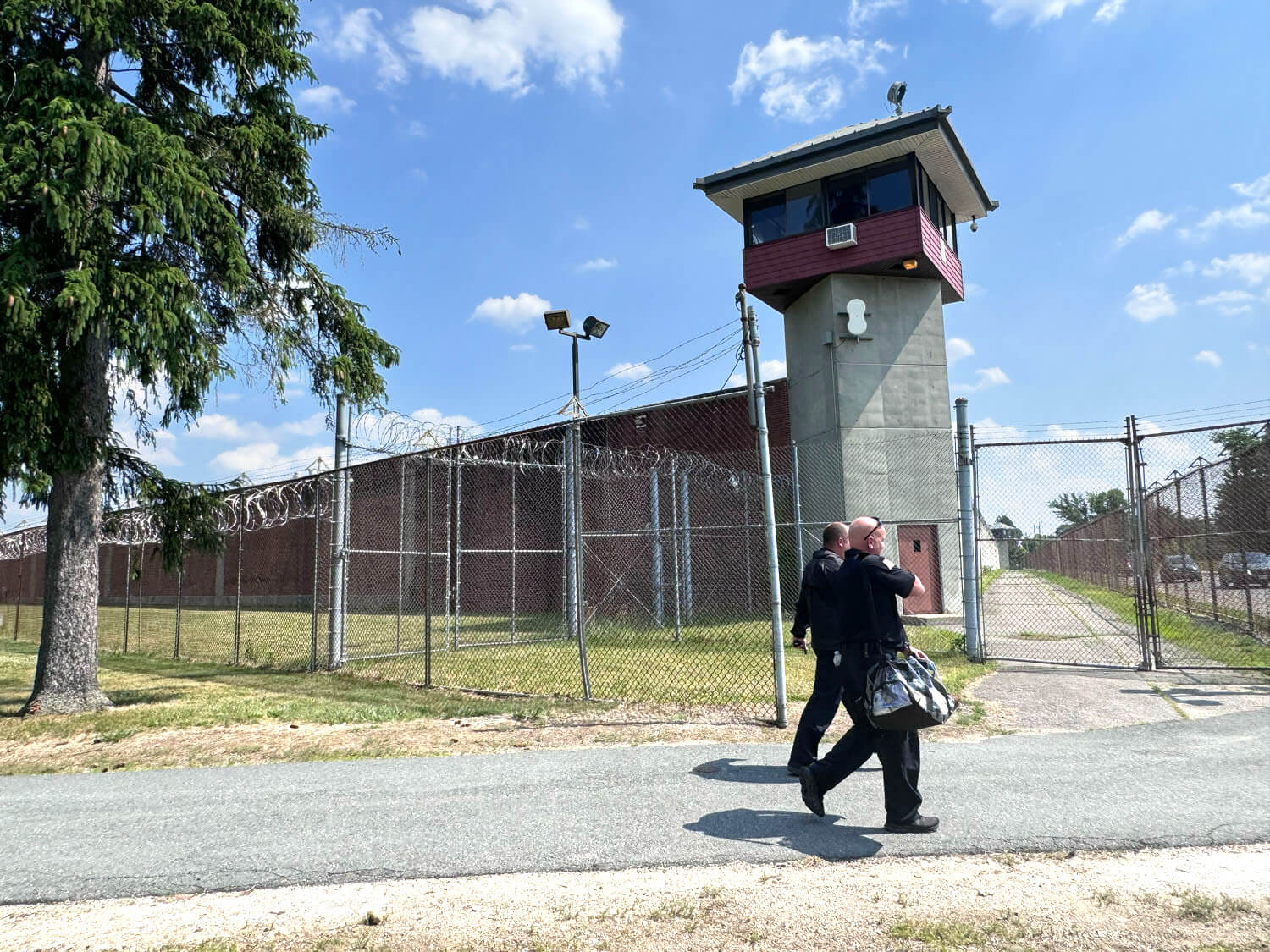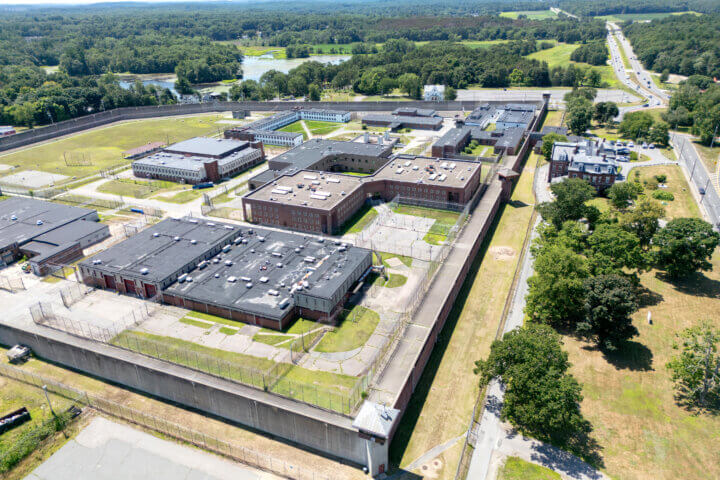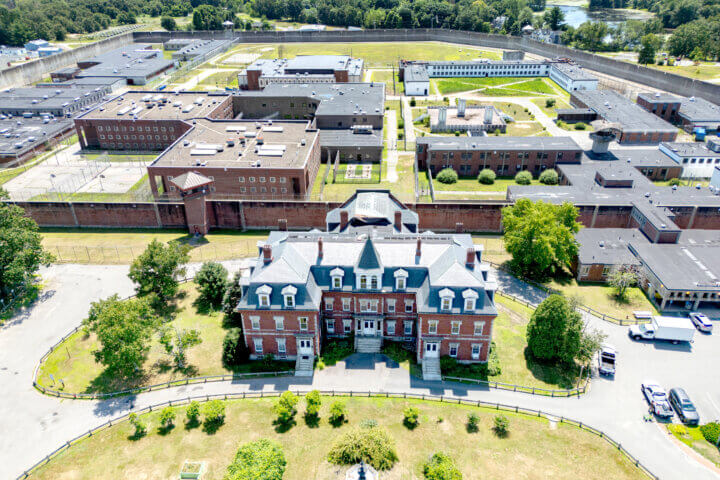By Erin Tiernan — Erin@theconcordbridge.org
With state emergency shelter space still maxed out, a former prison barracks in Norfolk reopened last week as an emergency shelter — a fate that won’t befall the Concord lockup coming offline now, the governor’s office says.
The Norfolk correctional facility, decommissioned in 2015, is the latest building repurposed in a scramble to house hundreds of families as migrants flood a shelter system already bursting at the seams.
MCI-Concord, however, will not land on the list of potential overflow sites, according to Gov. Maura Healey’s administration.
“That is not under consideration,” spokeswoman Karissa Hand told The Concord Bridge.
With shelters maxed out, arriving migrants had been overnighting at Logan Airport. On any given night over the past year, dozens to hundreds of families have bedded down there.
That’s now changing with a new order going into effect this week that bars migrant families from sleeping on airport floors.
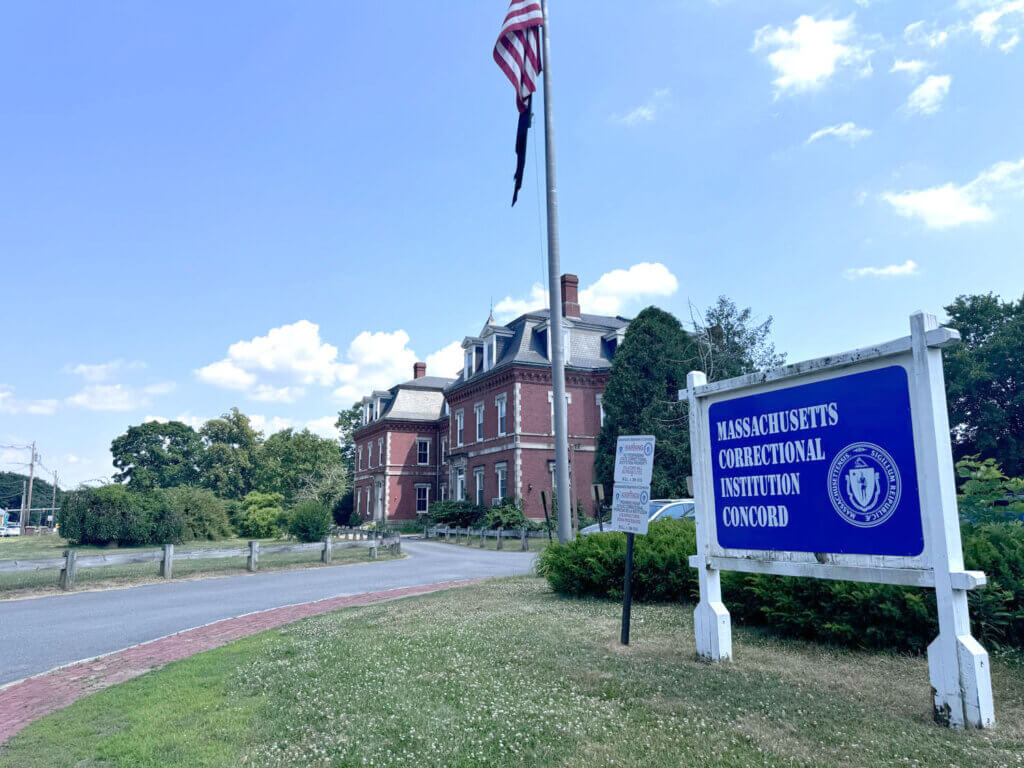
Keeping up
The Healey administration has rented hotel and motel rooms en masse in an attempt to keep up.
As need surges, she has turned to state buildings, including Melnea Cass Recreational Complex in Roxbury, an old Soldiers Home in Chelsea, and a National Guard Armory in Lexington. Up to 140 families — or 450 people — will move into Norfolk until they can get permanent housing or state shelter space.
In Concord, instead of emergency shelter, the governor is eyeing the prison site for permanent housing.
A redevelopment process has yet to unfold, but the state has moved inmates out of the prison and officials have held initial planning meetings.
Whatever’s next for the 62-acre site is sure to transform West Concord, Route 2 and — if state Rep. Simon Cataldo (D-Concord) gets his way — the infamous Concord rotary.
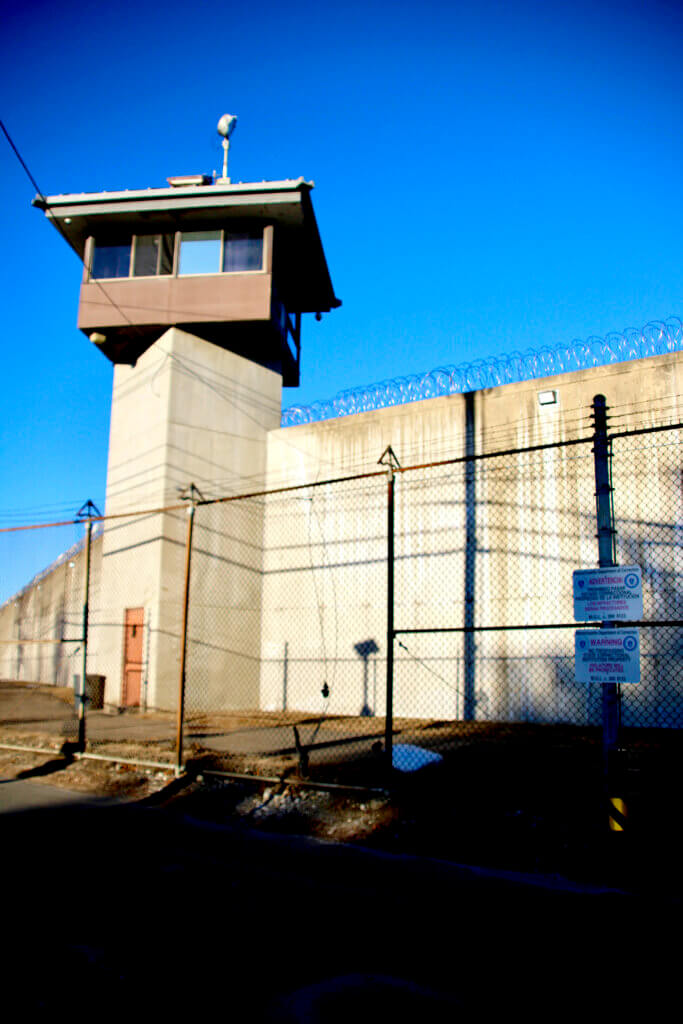
Cataldo and state Sen. Mike Barrett (D-Lexington) have been busy building safeguards into the coming year’s budget bill to guarantee Concord a voice in the redevelopment planning.
Local lawmakers were caught off guard by the January prison closure announcement.
Lawmakers are fighting for $475,000 in direct aid to Concord to cover some design and planning costs.
Another amendment details an exhaustive public process Cataldo has said is meant to protect the town’s interests.
“The post-announcement communication between [the state] and the town has been excellent, in my opinion, thus far, and there has been no indication of an interim use that would impede the development process,” the legislator said when asked if the state could factor Concord’s vacated prison space into the shelter response.
Pressure on the system
Building more housing is one key to easing the pressure on a state family shelter system in crisis. A housing shortage has pushed rents up and sent home prices soaring.
Massachusetts was ranked the least-affordable state in which to rent this year by the National Low Income Housing Coalition.
The statewide median single-family home price for the year so far is $575,000 — a 9.5% increase over 2023, the Warren Group said. It’s nearly three times higher in Concord, at $1.4 million.
Meanwhile, migrants continue to make their way to the Bay State.
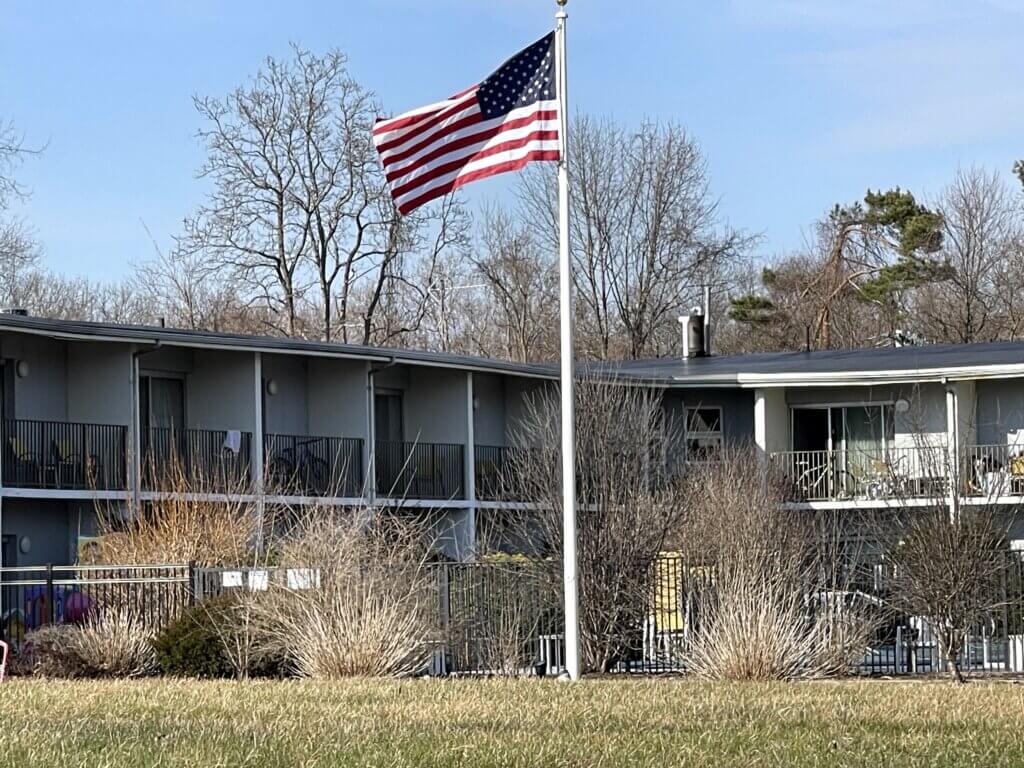
Massachusetts is the sole state in the nation with a right-to-shelter law that guarantees housing to pregnant women and homeless parents with children. Last year, Healey capped the program at 7,500 families because exploding demand came with a nearly $1 billion price tag.
Nearly 7,463 families were living in state shelters as of last week, state data show. Roughly half are migrants.
Concord, including an overflow shelter at the former Best Western, currently houses more than 51 families.


